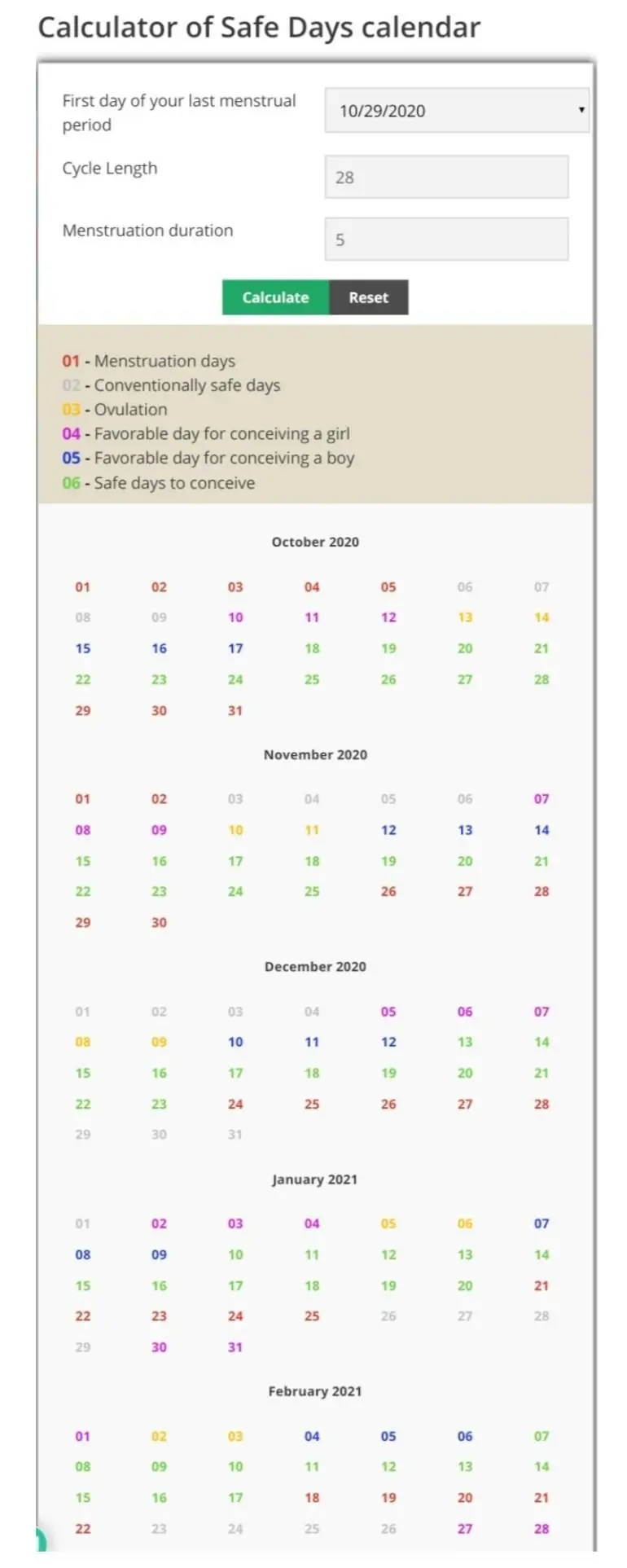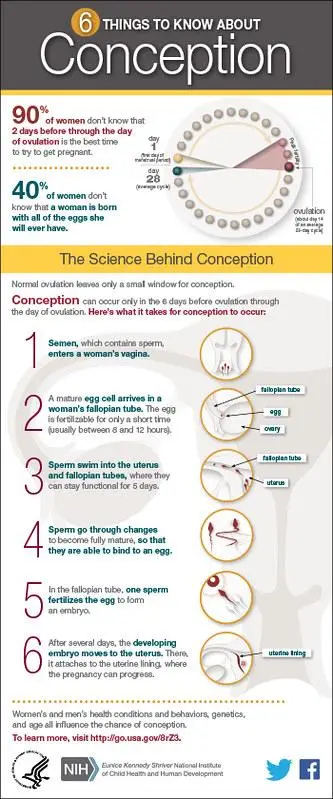Are you eagerly looking to expand your family but unsure about the best timing for pregnancy? Look no further! In a recent YouTube video titled “The Ultimate Guide to Timing Pregnancy | Expert Advice”, Dr. Chandrika Shekhar, a renowned Obstetrician and Gynecologist, shares valuable insights on the ideal time to conceive. From understanding ovulation cycles to debunking myths about calculated intercourse, Dr. Shekhar provides expert advice to help you increase your chances of conceiving naturally. Join us as we delve into the fascinating world of fertility and discover the secrets to successful family planning.
Timing is Key: Understanding the Menstrual Cycle for Conception

In order to understand the menstrual cycle for conception, it is crucial to know when the egg is released, as pregnancy can only occur when the egg from the female meets the sperm from the male. Typically, every woman has a cycle that lasts 28 to 30 days. The egg is usually released approximately 12 to 14 days before the start of the next menstrual period. This is the optimal time to engage in intercourse for conception to take place.
It is essential for couples not to focus solely on trying to conceive, as this can lead to stress and have negative effects on both partners. Instead, it is recommended to have regular and frequent intercourse, which increases the chances of conception naturally. By maintaining an intimate relationship without the pressure of calculating ovulation dates, fertility is likely to improve, leading to a higher likelihood of pregnancy.
Many couples, especially those with busy work schedules, may find it challenging to find time for physical intimacy. However, it is important to prioritize intimate relationships to boost fertility. By engaging in frequent intercourse without the stress of pinpointing ovulation dates, couples can enhance their chances of conception. Therefore, it is advisable to focus on intimacy rather than strict calculations to improve fertility and increase the chances of pregnancy.
The Optimal Window: Calculating the Best Time to Conceive

In order to calculate the best time to conceive, it is important to understand the menstrual cycle and ovulation process. Ovulation occurs when the egg is released from the ovaries and is ready to be fertilized by sperm. Typically, this happens around 12 to 14 days before the start of the next menstrual period. To maximize the chances of conception, it is recommended to have intercourse during this fertile window.
It is crucial to approach the concept of trying to conceive with a positive and relaxed mindset. Instead of stressing about pinpointing the exact ovulation day, focus on having regular and enjoyable intimate moments with your partner. Frequent intercourse naturally increases the likelihood of conceiving during the fertile period. Remember, the goal is not just to get pregnant, but to also nurture a healthy and happy relationship with your partner.
In today’s busy world, where both partners may be working and have hectic schedules, finding time for intimacy can be a challenge. However, prioritizing physical connection and avoiding the pressure of calculating ovulation dates can significantly improve fertility. Rather than obsessing over specific dates, allow for spontaneity and intimacy to increase the chances of conceiving. Ultimately, a happy and stress-free relationship can contribute to a successful pregnancy journey.
Maintaining a Healthy Relationship for Increased Fertility

Maintaining a healthy relationship is crucial for increased fertility. When it comes to timing pregnancy, it’s essential to understand the menstrual cycle and ovulation process. Dr. Chandrika Shekhar advises that conception occurs when the ovaries release an egg that meets the sperm in the female genital tract. Typically, eggs are released about 12 to 14 days before the next menstrual period. Therefore, identifying this window is key to maximizing the chances of conception.
Rather than focusing solely on pinpointing the exact ovulation date, Dr. Shekhar emphasizes the importance of regular and stress-free intimacy. Stress can negatively impact fertility, so it’s essential for both partners to maintain a healthy and enjoyable physical relationship. By engaging in frequent intercourse, the likelihood of the egg and sperm meeting naturally increases, leading to a higher chance of pregnancy. This approach is more organic and less pressured than strictly calculating ovulation dates.
In today’s fast-paced lifestyle, it can be challenging for working individuals to find time for intimacy. However, prioritizing intimate moments can significantly enhance fertility. Dr. Shekhar encourages couples to have more frequent and spontaneous intercourse rather than rigidly sticking to a calculated schedule. By nurturing a strong emotional and physical bond, couples can improve their chances of conceiving and increase the overall joy and satisfaction in their relationship.
Stress-Free Approach: Enhancing Conception Chances Naturally

Timing is crucial when it comes to enhancing your chances of conception naturally. Dr. Chandrika Shekhar emphasizes the importance of understanding your menstrual cycle to determine the best time for conception to occur. Typically, ovulation takes place around 12 to 14 days before your next period, so tracking this timing can greatly increase your chances of getting pregnant.
While it’s essential to be aware of your fertile window, it’s equally important not to let the pressure of trying to conceive add unnecessary stress to your relationship. Dr. Shekhar suggests that couples should have frequent intercourse throughout the month, rather than solely focusing on specific days for conception. By maintaining a healthy and active intimate relationship, the chances of pregnancy naturally increase.
In today’s fast-paced world, where both partners are often working and have busy schedules, finding time for intimacy can be a challenge. However, carving out time for each other and prioritizing your relationship can positively impact fertility. Avoid the stress of calculating ovulation dates and instead focus on regularly connecting with your partner to increase the likelihood of conception without unnecessary pressure.
The Role of Frequency: Improving Fertility Through Intimacy

Understanding the role of frequency in improving fertility through intimacy can greatly increase your chances of conception. Dr. Chandrika Shekhar emphasizes the importance of not solely focusing on timed intercourse for the purpose of getting pregnant, but rather on maintaining a healthy and happy intimate relationship with your partner.
<p>It is essential to know your menstrual cycle, as the release of the egg is a crucial part of the conception process. Typically, the egg is released around 12 to 14 days before your next menstrual period. By determining this window of fertility, you can maximize your chances of conceiving by engaging in intercourse during this timeframe.</p>
<p>Dr. Shekhar suggests that frequent intercourse naturally aligns with the release of the egg, increasing the likelihood of pregnancy. By not overthinking or stressing about the timing of ovulation, you can create a more relaxed and enjoyable environment for both partners, which can positively impact fertility.</p>
<p>Remember, intimacy should be a regular part of your relationship, not just a means to an end. By incorporating frequent and meaningful intimate moments into your routine, you can enhance your fertility naturally and increase the possibility of conceiving a child.</p>
Balancing Work and Personal Life: Prioritizing Physical Relationships

In the world we live in today, balancing work and personal life can be a challenge, especially when it comes to prioritizing physical relationships. As Dr. Chandrika Shekhar, an Obstetrician and Gynecologist with extensive experience, explains, timing is crucial when it comes to pregnancy. Let’s delve deeper into the expert advice she provides on the best ways to maximize your chances of conceiving.
Understanding the Menstrual Cycle: Dr. Chandrika emphasizes the importance of understanding the menstrual cycle to pinpoint the best time for conception. Typically, a woman’s cycle lasts 28 to 30 days, with ovulation occurring about 12 to 14 days before the next period. By tracking this timeline, you can identify the optimal window for conception.
Frequent Intimacy Over Calculated Timing: Dr. Chandrika advises against solely focusing on calculating the perfect day for intercourse. Instead, she suggests prioritizing frequent intimacy to enhance fertility naturally. By nurturing a healthy physical relationship, stress levels decrease, and the likelihood of conception increases.
Balance in Modern Relationships: With the fast-paced nature of modern life, it can be challenging for working individuals to make time for intimate relationships. Dr. Chandrika highlights the importance of prioritizing physical connections, as it not only strengthens the bond between partners but also increases the chances of fertility. It’s all about finding a balance between work responsibilities and personal well-being.
Ultimately, following Dr. Chandrika’s expert advice on timing pregnancy can help couples navigate the delicate balance between work and personal life while prioritizing physical relationships for a successful conception journey. Remember, it’s not just about the timing, but also the quality of your connections that can make all the difference.
Embracing Spontaneity: A Guide to Successful Pregnancy Timing

In the world of pregnancy planning, timing is everything. Understanding the intricacies of ovulation and fertility can greatly improve your chances of conceiving successfully. Dr. Chandrika Shekhar, an experienced Obstetrician and Gynecologist, highlights the importance of embracing spontaneity when it comes to conception.
Key Points:
- Focus on regular intimacy rather than calculated intercourse for a more relaxed approach to conception.
- Stress can hinder fertility, so it’s essential to maintain a healthy and enjoyable relationship with your partner.
- Ovulation typically occurs 12 to 14 days before the start of your next menstrual period, making this window the most fertile time for conception.
- Incorporating frequent intimacy into your routine can naturally align with your ovulation cycle, increasing the chances of pregnancy.
Remember, the journey to parenthood should be filled with joy and love, so don’t let the pressure of timing overshadow the beautiful experience of starting a family. Trust in the natural process, prioritize intimacy, and let spontaneity guide you on your path to successful pregnancy timing.
Q&A
Q: Who is Dr. Chandrika Shekhar and where does she practice as an Obstetrician and Gynecologist?
A: Dr. Chandrika Shekhar is an Obstetrician and Gynecologist who practices at Chirag Hospital, JP Nagar second phase, Manipal Hospital Jayanagar 9th block, Apollo Cradle Hospital Jayanagar 5th block, and Motherhood Hospital Banshankari second stage.
Q: When is the best time to conceive, according to Dr. Chandrika Shekhar?
A: According to Dr. Chandrika Shekhar, the best time to conceive is around 12 to 14 days before your next menstrual period, when the egg is typically released.
Q: Why does Dr. Chandrika Shekhar advise against calculating intercourse for the purpose of conceiving?
A: Dr. Chandrika Shekhar advises against calculating intercourse for conception as it can lead to stress for both partners. Frequent, natural intercourse is recommended as it can improve fertility without the added pressure of trying to conceive.
Q: How does Dr. Chandrika Shekhar suggest improving fertility without stress?
A: Dr. Chandrika Shekhar suggests having frequent intimate relationships to naturally increase fertility, rather than strictly calculating ovulation dates. This approach can help couples conceive without the added stress of trying to time intercourse for conception.
Final Thoughts
In conclusion, Dr. Chandrika Shekhar has shared valuable insights on timing pregnancy in her informative video. Understanding your menstrual cycle and the best time for conception can greatly increase your chances of getting pregnant. Remember, it’s important to not stress about calculating the perfect day for intercourse, but instead focus on enjoying intimate moments with your partner. By maintaining a healthy and frequent physical relationship, you can naturally improve your fertility. So relax, stay happy, and let nature take its course. Here’s to a successful and stress-free journey to parenthood!




Pingback: select health - Dr Strong
Pingback: athena health patient portal - Dr Strong
Pingback: exercise videos - Dr Strong
Pingback: lifestyle 24/7 - Dr Strong
The Ultimate Guide to Timing Pregnancy | Expert Advice – Dr Strong
xyirwobzrd http://www.g67rv68cvo1ry6fy97rpe9z5bo636342s.org/
axyirwobzrd
[url=http://www.g67rv68cvo1ry6fy97rpe9z5bo636342s.org/]uxyirwobzrd[/url]